A sense of longing and the story of survivors
By Malin Norman | Photos: Tornedalsteatern
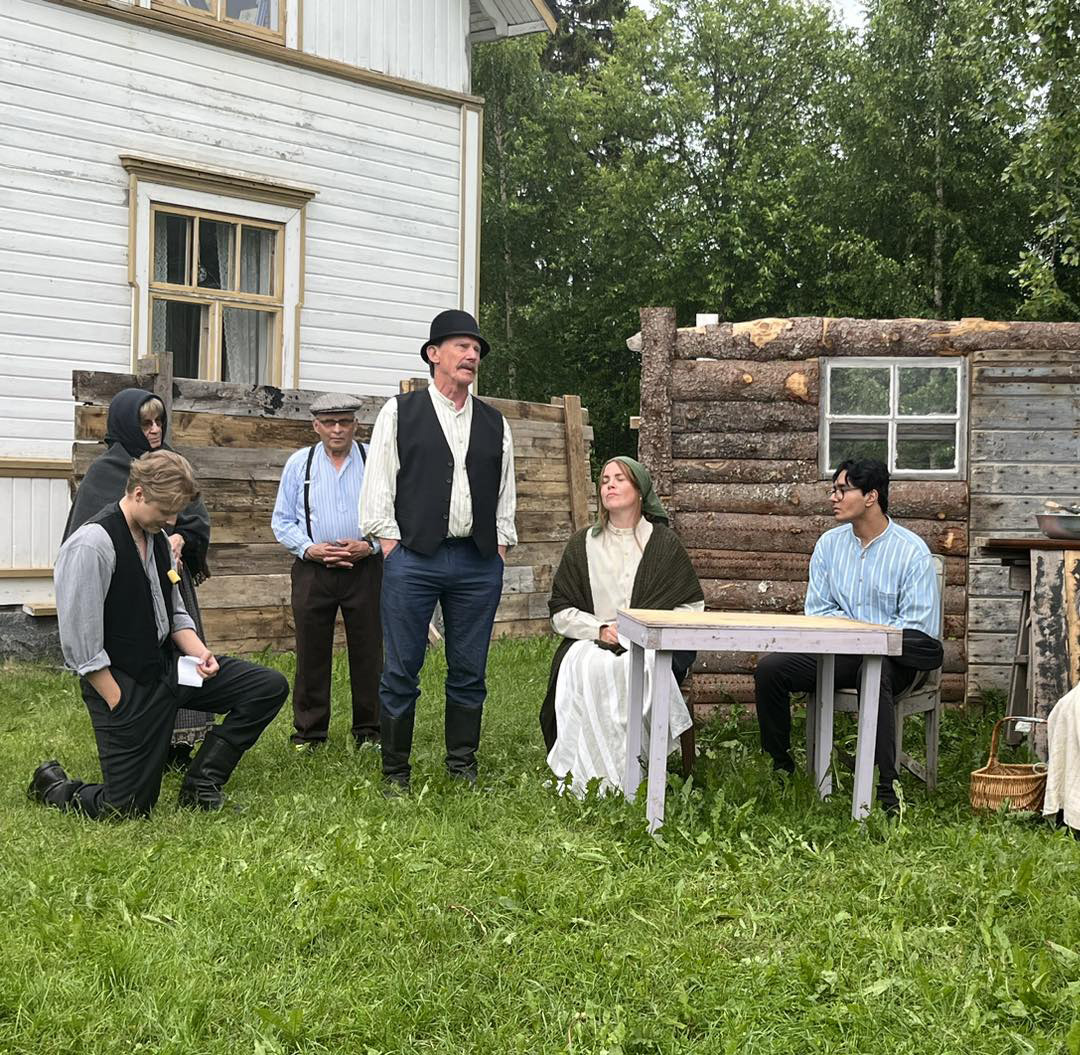
This summer saw the premiere of a play by Richard Lidberg, about a family from Tornedalen and their emigration to America in the 1880s. Titled Ditlängtan, loosely translated as longing for what’s ‘over there’, the one-week stage performance was directed by Bror Astermo, produced by Ros-Mari Barmosse, and performed at Sakarigården by a talented ensemble from Tornedalsteatern.
“During the 19th century, over a million Swedes left the country,” says Richard Lidberg, scriptwriter and co-founder of Stockholm-based production company Rito Produktion. “Many people suffered from poverty in Tornedalen and sought happiness elsewhere, first in Northern Norway and then America. Some people later returned back home to Tornedalen, with new customs and newly acquired knowledge.”
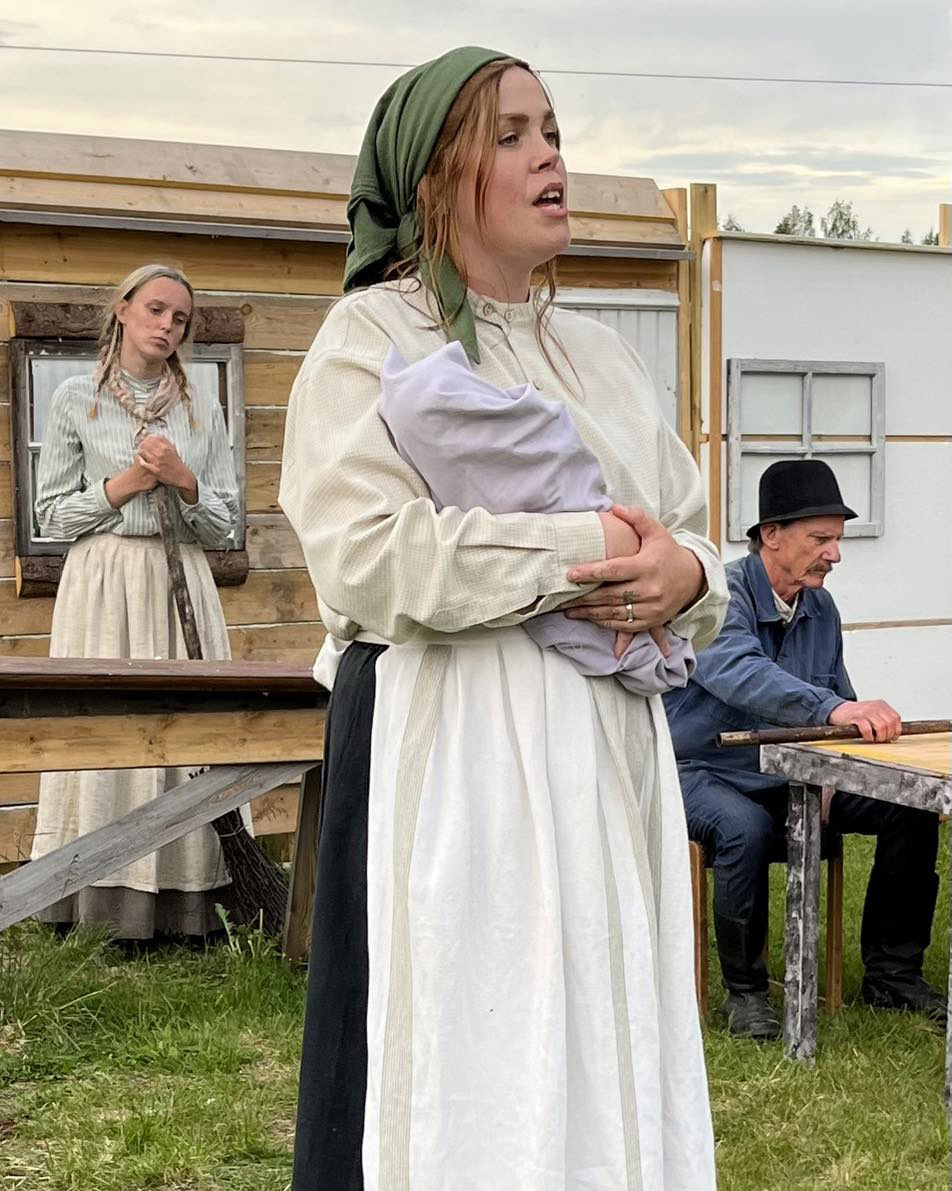
The emigration from Karungi, north of Haparanda, is the theme of the play Ditlängtan. Lidberg carried out extensive research on the topic, including reading letters sent by Swedes who had emigrated and were part of a doctorate at Luleå University. These letters inspired the historical drama set in Tornedalen, Northern Norway and America.
Ditlängtan explores the question of whether the grass is really greener on the other side. “People’s driving force and yearning was mainly to escape poverty. When I wrote the play, I was wondering whether when they ventured to America, did they ever miss home,” elaborates Lidberg. “It fascinates me, that sense of longing for what’s ‘over there’ versus longing for home.”
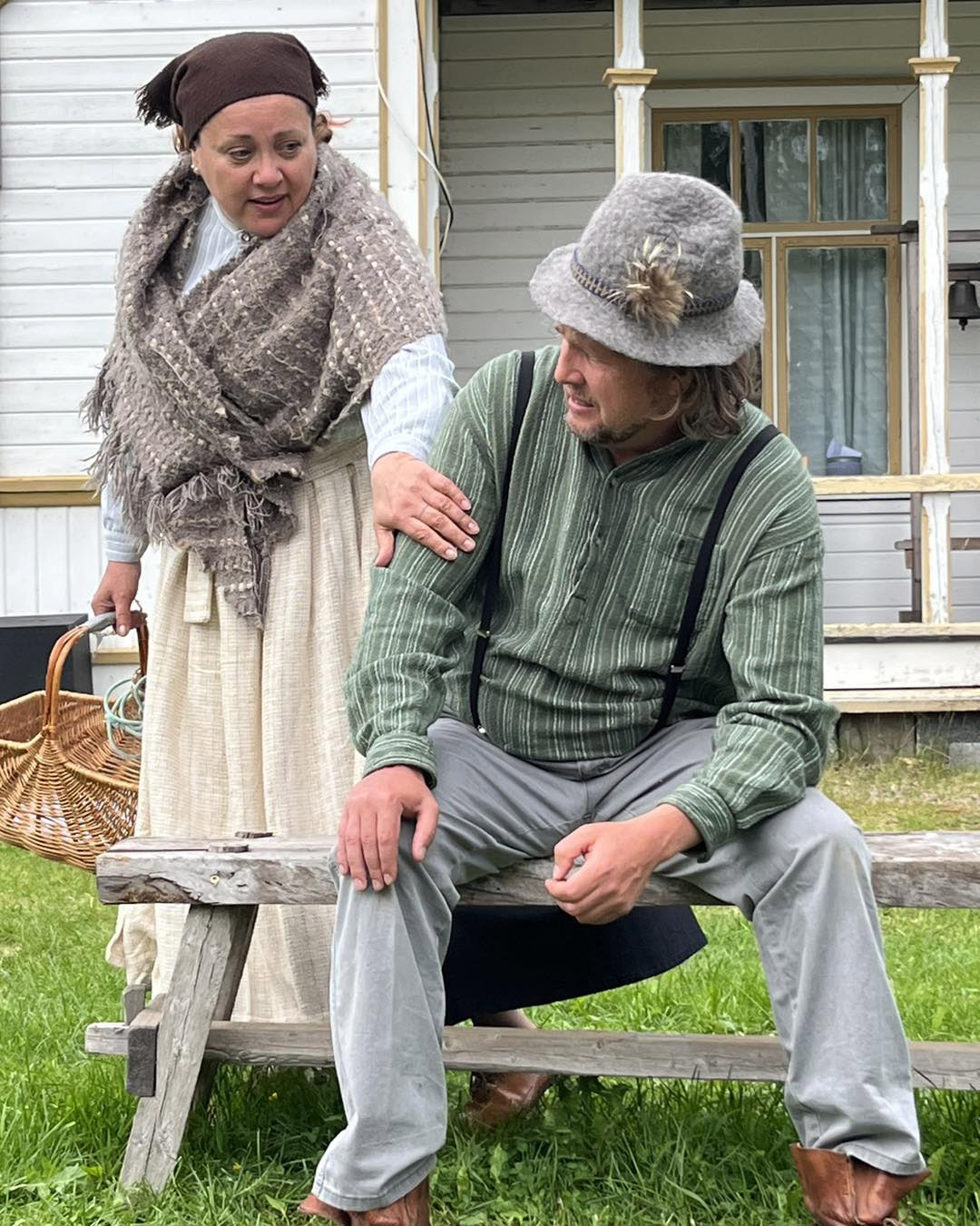
Longing for something else, somewhere else
At the centre of the play are two sisters in their 30s, Lisa and Fredrika, and their journey to America. Lisa is a determined woman but unsure if she actually wants to go to America. She is expecting a child with her husband Johan, and is worried about the long journey across the ocean. Lisa’s sister Fredrika is a widow and wants to go to America to get a better life for herself and her three children. She tries to bring Lisa and Johan along together with Johan’s younger brother Anton, with whom Fredrika has fallen in love.
Johan is quiet and shy, and people think he’s somewhat of a village fool because he doesn’t dare to take matters into his own hands. He wants to start over in a new place, where he can show people who he really is. And his brother Anton is a strong, young man who badly wants to accompany his loved one, Fredrika, to America. But it turns out that getting away is not so easy.
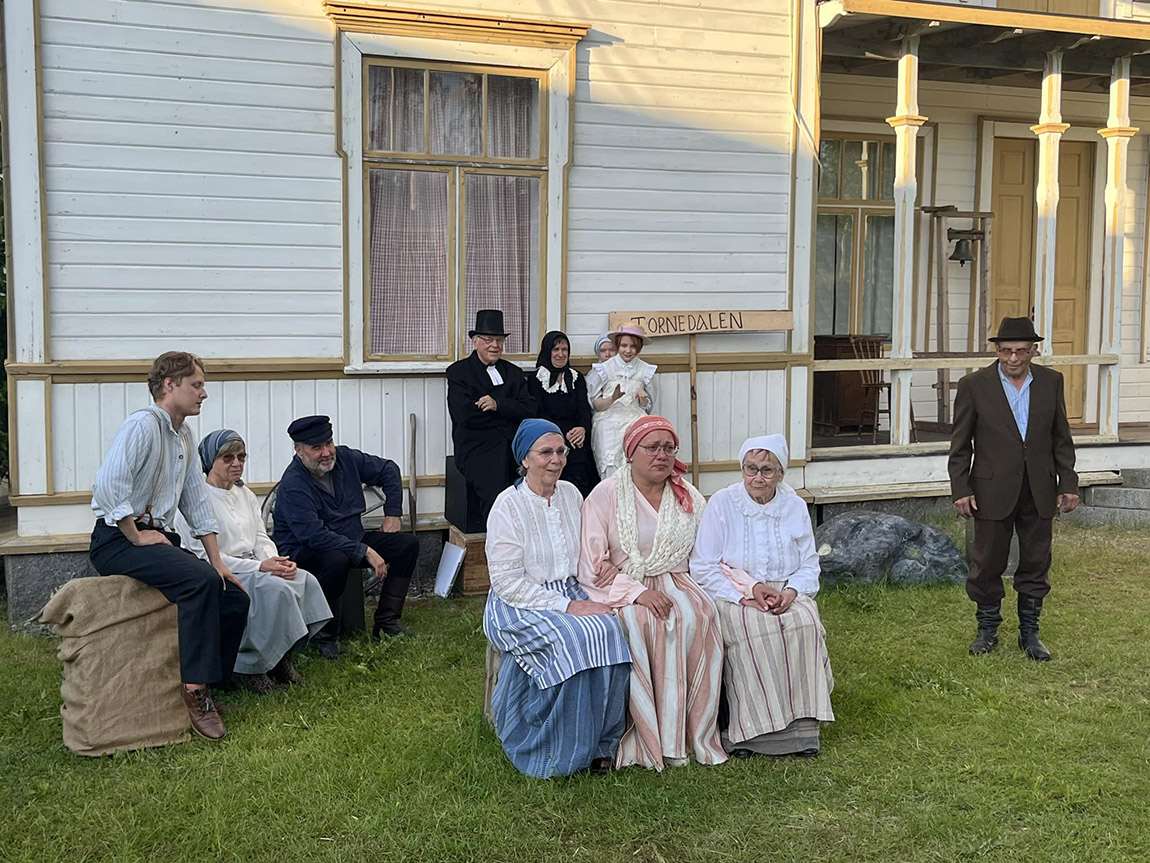
In addition to the central theme of longing for a better future, the play explores what actually happened to the families who succeeded abroad as well as those who did not. “Some families went to Norway, but discovered that the mines, with the work opportunities, had been closed down. And some went to America, only to be deceived,” explains Lidberg. “But there were also those who actually made it and some of them later returned to Sweden, all the wiser from their experience.”
Despite the at times heavy topics, including a deadly accident, the play has a light atmosphere with a number of songs integrated, and was staged as an outdoors summer performance. And the audience and local media loved it, with the premiere sold out and the rumour spreading fast so that the crew had to add more seats for the remaining performances.
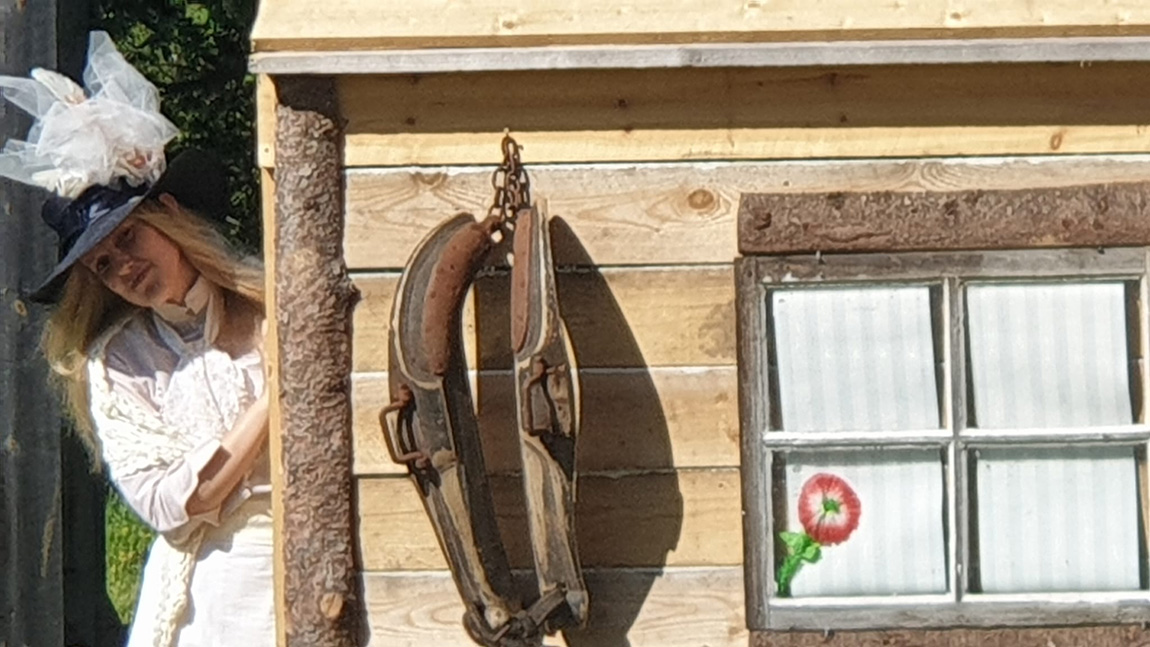
A story told, from a survivor to a survivor
Lidberg is also the author of another successful play, Överlevare till Överlevare (Survivor to Survivor). He explains the framework; “It’s a monologue based on a true story about being a war refugee and losing a child, being a survivor to a survivor, about alienation and loneliness, but also about searching and finding oneself. It’s about the hope and light that is all around us.”
When Martin was seven months old, he was taken from his parents by the Swedish state and placed in an orphanage. His parents were concentration camp survivors during World War II; Ester was born in Budapest, was sent to Auschwitz and eventually came to Sweden in 1945, whilst Aron came from Transylvania, was also sent to Auschwitz but didn’t meet Ester there, and came to Sweden in 1950.
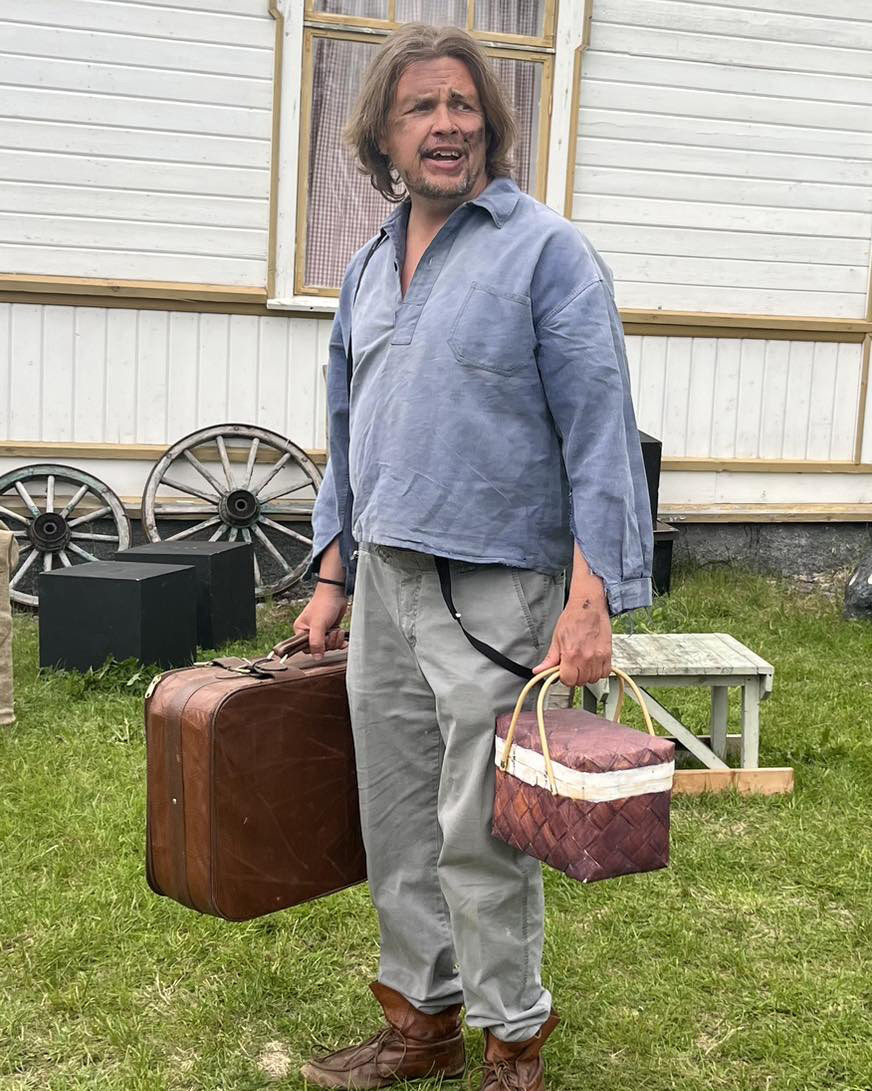
“Ester and Anton met, fell in love, and had a baby in 1955,” says Lidberg. “However, they were two damaged souls. And even though Martin received a lot of love from his parents, it wasn’t enough to keep him.” At the age of three, he was placed in a foster home, which was filled with booze, threats and violence. Meanwhile, Martin’s biological parents struggled to get their son back. At the age of 23, he tried to take his own life.
Martin eventually wanted to share his story with others, through a series of lectures that were later turned into a script with ten monologues written by his friend, Lidberg. The critically acclaimed play has been set up in a number of locations in Sweden and abroad. Impressively, it has also been selected for Expo:Scenkonst 2025, Sweden’s largest producers’ fair for theatre, which takes place 8-9 February in Lund, southern Sweden.
What’s next for this talented scriptwriter? Lidberg has a movie script ready for Överlevare till Överlevare. And he has plenty more up his sleeve; “All families have their own story. It’s my desire to tell some of these stories, about people and their destinies, whatever they may be.”

Richard Lidberg, scriptwriter
Subscribe to Our Newsletter
Receive our monthly newsletter by email





